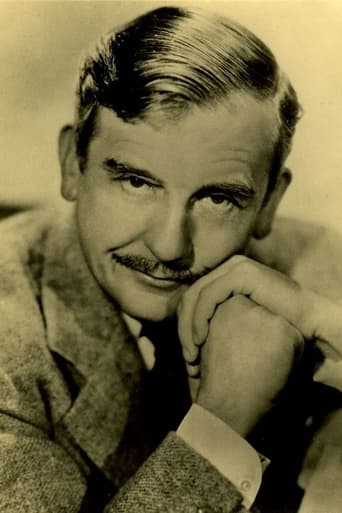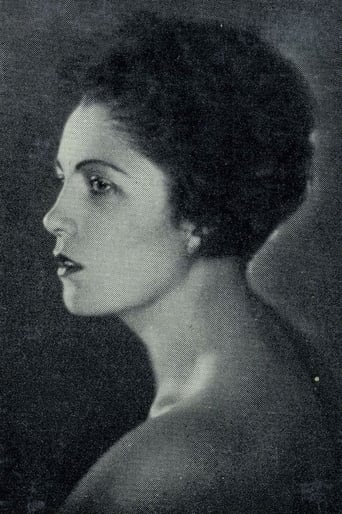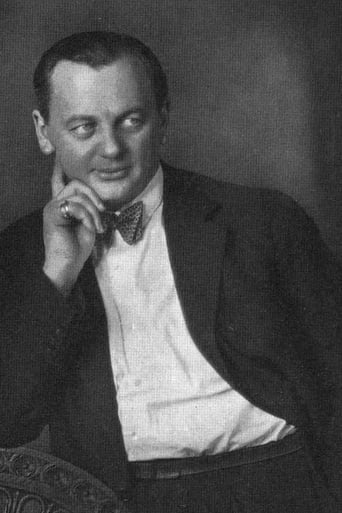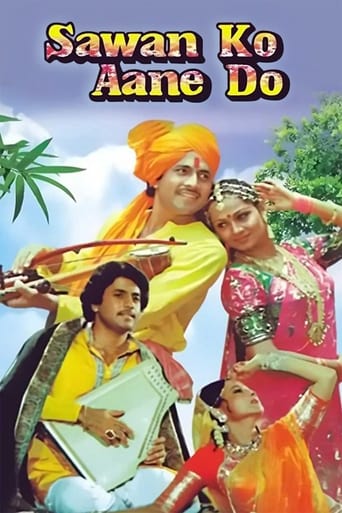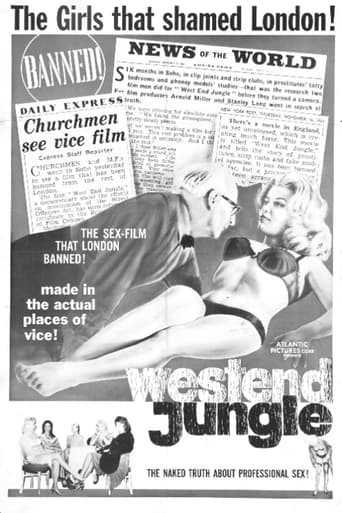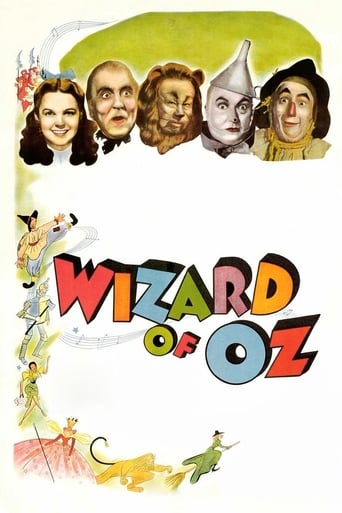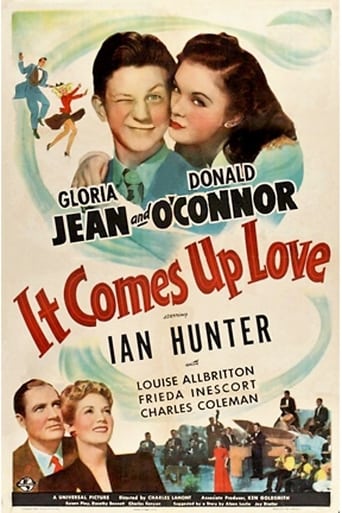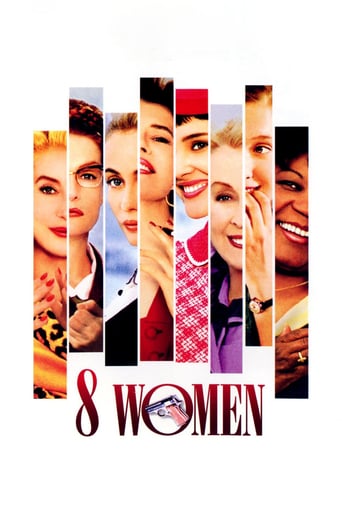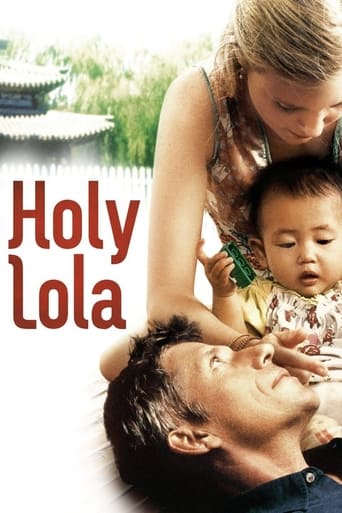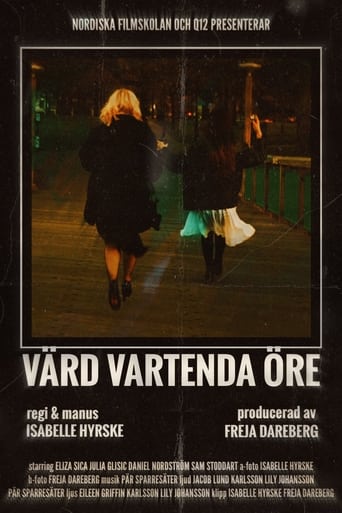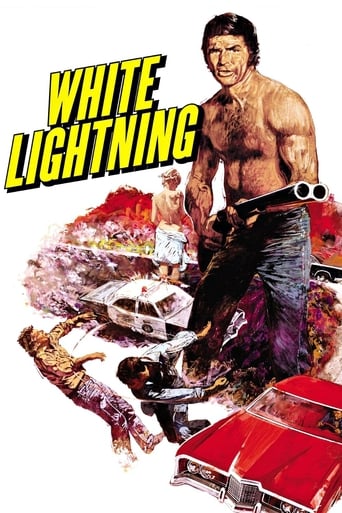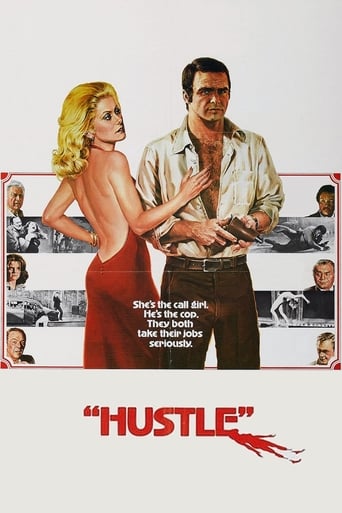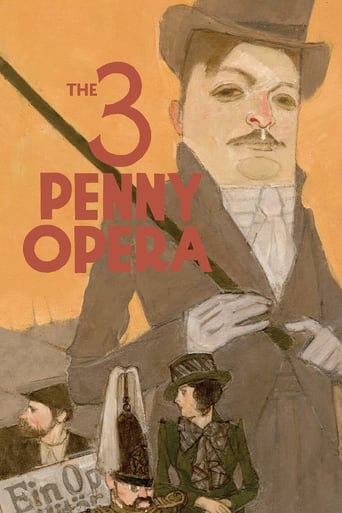
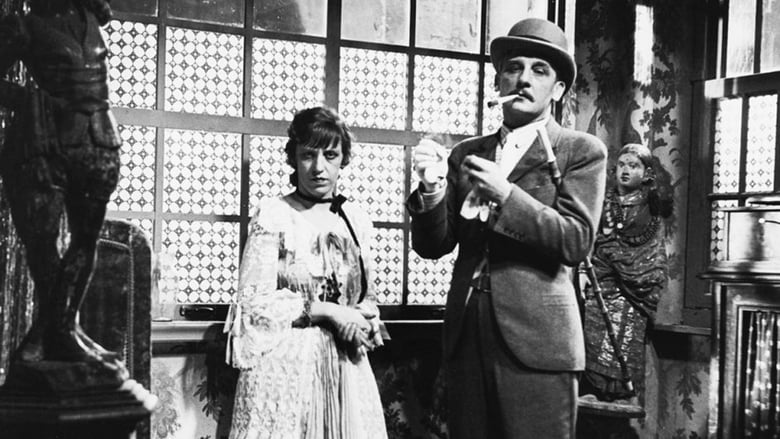
The 3 Penny Opera (1931)
In London at the turn of the century, underworld kingpin Mack the Knife marries Polly Peachum without the knowledge of her father, the equally enterprising 'king of the beggars'.
Watch Trailer
Cast


Similar titles
Reviews
As Good As It Gets
a film so unique, intoxicating and bizarre that it not only demands another viewing, but is also forgivable as a satirical comedy where the jokes eventually take the back seat.
It’s fine. It's literally the definition of a fine movie. You’ve seen it before, you know every beat and outcome before the characters even do. Only question is how much escapism you’re looking for.
A terrific literary drama and character piece that shows how the process of creating art can be seen differently by those doing it and those looking at it from the outside.
I've read the reviews of this film so far with a lot of interest. I found this version of "The Threepenny Opera" to be well worth seeing multiple times. It has a great cast, a complex script and is heroic in some ways while not so heroic in its ending.The sell-out ending, a preposterous twist where Polly, temporarily at the head of her husband Macheath's gang, manages somehow for them to buy a bank; and she, Macheath and her 'king of beggars' father all wind up extolling the virtues of feeding off the poor with said bank is hard to stomach for leftist revolutionaries. We can only assume the production was under pressure while it made this film in Berlin during the rise of the Nazis.I loved it visually. The cast is exceptional. While I've read everyone's comments about Lotte Lenya's 'Pirate Jenny', I adored Carol Neher's lone song even more. In my view, Neher (as Polly) breaking out in song at her wedding reception, when we know nothing about her character thus far, is the highlight of the film.(When we learn what a terrible life she lived after this movie was released one can really appreciate Carola Neher's performance. She must have been an incredible person to work with on a film, particularly during such a time as 1931's Berlin.) Overall, Pabst's 'Threepenny' isn't perfect. Still, I recommend it highly. It should be seen by film fans looking to be floored by early sound-era performances that have been criminally forgotten today.
You have to appreciate this is from a time when a battle was being fought over the soul of Germany from the streets to the screen. That was true when Brecht wrote the play, and even more so three years later in this film incarnation. On one side you had Pabst, socially-conscious, humanist, and on the opposite end Riefenstahl's visions of mystical , sensuous and heaven-defying purity (and all that prefigures).And I write this from a country that experiences an eerily similar situation almost a century later, is ravaged by recession, well-to-do people of three years ago are now sleeping in benches, and that horror and despair has brought actual neo-Nazis in the parliament and racial hate in the streets. So, this hits unexpectedly close to home, and makes me lament that we don't have talents of Pabst's calibre.Ingenious moments in this extremely cynical vision of a world ruled by money include a 'king of beggars' who runs a powerful beggar-union of fake beggars, and a crook who is sprung from prison only to discover he is president of a London bank.Pabst plays free and loose with Brecht's text, drops several musical numbers, and makes at least two powerful additions of his own: his ire is aimed at both left and right, with the beggar-union clearly standing in for socialists (their slogans include "give to be given back") who exploit the despair of the people for petty gains, and goes on to show a public riot (only threatened in Brecht) that ends not in triumphant Soviet-revolution but failure and obscurity.The guy (with his team of close collaborators) was a genius, just not necessarily in this field. Individual scenes are superb, but the whole feels sluggish and protracted. Scenes open several moments before we need the information and end several moments later. And for a film like this, you need a Marx Bros - Dr. Strangelove madcap rhythm to keep the zap of ferocious energy from dissipating.But you just need to look at the opening to see what these guys were capable of, what astounding visual language they had refined.The sparsity works because they're not going for comedic effect yet. It could be the opening to any type of film, say a melodrama. We are introduced to our crook through a public show in the Italian manner, sung and pointing to illustrated panels of the action (our film), and go on to meet him as he courts and swiftly convinces a young girl to marriage. All of that happens in a matter of minutes, no more than four scenes tops. There is a minimum of dialogue. The courting - a dance of seduction - happens in a dance club, and is actually shown as other couples dancing. We don't hear what he says to her, only lips moving. We only find out later (maybe) when she sings about it.Pabst was the master of allusive filmmaking in the late silent era. You just can't afford to miss his Diary of a Lost Girl.These days, Eisenstein is the backbone of MTV. You can see Riefenstahl's mark all over the coverage of sports and public events. Expressionism has been made cute and pop. Unlike them, this mode of using a scene to portray unseen bits of narrative that would have been wholly ordinary if simply shown is still new and untapped.
I've just seen the restored 2006 German print, and while I found it entertaining, it's almost as long as the stage musical. The film medium can't support this, and after about the first half hour, it becomes claustrophobic and momentum-less, and a great disappointment. I had to fight the urge to pick up the clicker and press fast-forward. Part of the problem seems to me that the screenplay adapter or adapters didn't trust Brecht and Weill's theatrical instincts sufficiently: they left out half the songs (though the sound is remarkably good for 1931) and reordered the ones that were left. Most problematically, they rewrote the ending, with this nonsense of Polly and the gang taking over a bank. No march to the scaffold, no "Ballad of Sexual Dependency", no last-minute pardon from the King...Many reviewers here seem to take the London location too seriously. That's just a relic of the John Gay original (The Beggar's Opera): it is most clearly meant to be a satire on Weimar Republic Germany. That's why the Nazis banned it. The real corruption is in the official institutions of power, not in the relatively benign underworld (which reappears in very similar shape and form in Fritz Lange's "M".) Those who don't know Brecht's translations of Gay's original names and texts should learn that MacHeath becomes 'Mackie Messer' (messer mean 'knife' in German, thus 'Mack the Knife'.)The best thing about the film, is probably the documentary record it contains of just how the original audiences would have seen the story, and how the original performers would have rendered the songs. I particularly liked the Moritaet-Saenger and his incredible trilled "Rs" in the opening scene.
This adaptation of Brecht/Weill's Musikspiel is considered by many a classic masterpiece. Classic it may be (and as such historically important), but a masterpiece it is not. I am not interested in the changes vis-a vis the play: recent research has found out that most changes were already proposed by Brecht himself and other research has found out that Brecht was not the writer at all, but Elisabeth Hauptmann. Nor am I interested in the fact that Weill's music is reduced and that not all songs are performed, which was unavoidable.The point is that although there was real potential for a masterpiece (set designer, cast, director, cameraman etc.), Pabst never succeeds in making this adaptation into a real filmic adaptation. Scenes are presented in order, but never there is a feeling of a close and tightly held drama; the film is more or less subdivided. This may have been on purpose (considering the structure of the play), but for me it just does not work as film. It seems if no real choice was made between a documentation of the play or a truly filmic adaptation; what we are left with is something that lies in between, and that never comes alive. Are we seeing the result of all the (judicial) troubles director and writers had with Brecht and Weill? Or were the makers just too involved in making a masterpiece?So, is this a mediocre or even bad picture? Certainly not. Individual scenes are fine due to sets and cast and the way in which Wagner and Pabst know how to use them (no room here to analyze this). But, on the other hand: do we really see or feel a menacing threat from the army of beggars? Do we really need Ernst Busch as the street singer?; do his scenes really add something? And are most songs not just registered as if they were performed on a stage? And is the editing not just adequate?Today was my 5th or 6th viewing. I still cannot see why this film ever could be acclaimed a masterpiece.


